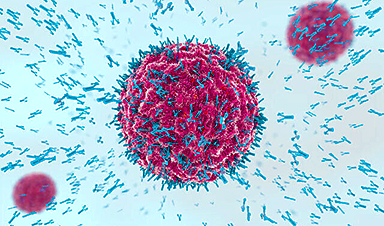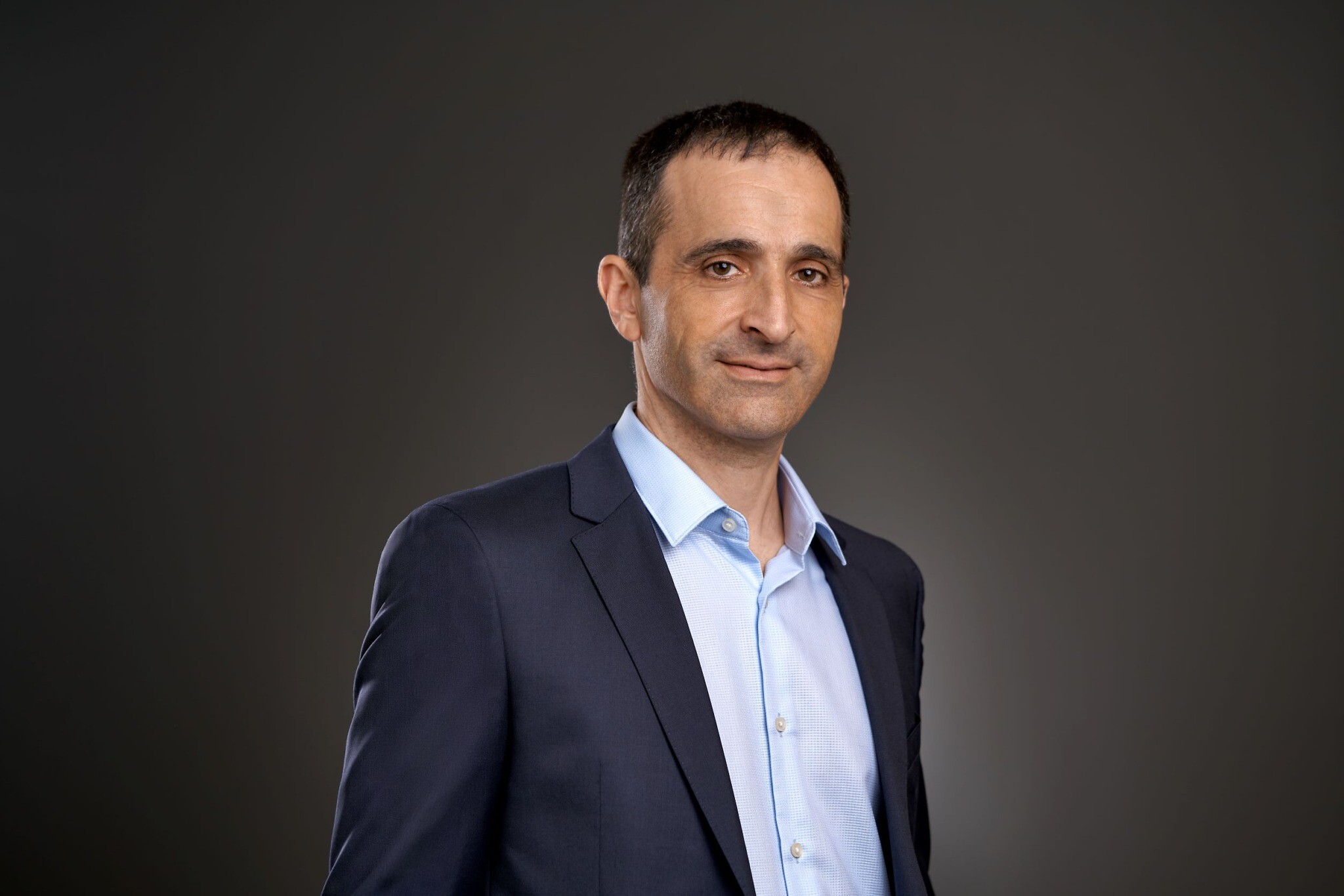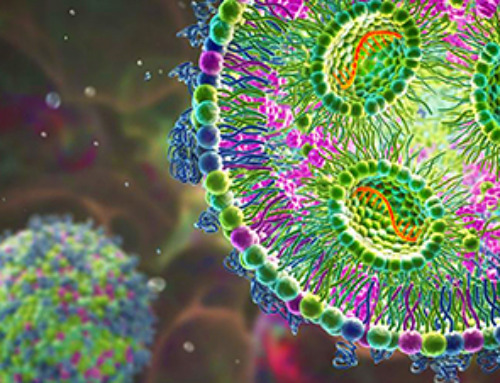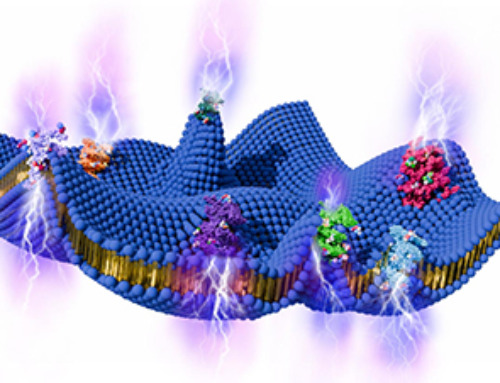Cancer patients are testing a medicine made of antibodies that were designed from scratch on a computer in Israel and whose inventor has “programmed” them to “decide” whether cells surrounding tumors are bad or good.
If the trial, which is underway in Australia, goes according to plan, these antibodies will fight cells that help the tumor while boosting the abilities of cells that inhibit cancer growth.
Their inventor, Prof. Yanay Ofran, said that until now, antibody treatments have been based on human or animal antibodies. They are then developed in labs and mass produced, but the final product retains limitations from the original antibodies.
“Antibodies are very successful, but the way they are used in medicine today utilizes only a fraction of their capability,” he told The Times of Israel. “Our mission is to take antibodies and seize on the fact they are safe, stable, easy to use and can stay on the shelf for years, to unlock their full ability.”
Ofran, a Bar Ilan University professor, has published numerous peer-reviewed studies on his method of designing antibodies on a computer. They emphasize the “smart” quality of the new antibodies.
This means that instead of carrying out a single function, like fighting a single virus, they can survey their surroundings and act in different ways when faced with different types of cells. Ofran refers to them as “nano-robots.”
The new AU-007 antibody treatment is the first computer-designed antibody to enter a human trial, he said. It was designed by artificial intelligence software at the Rehovot offices of his startup Biolojic Design, and is being trialed by its spin-out company Aulos Bioscience. Biolojic is now working on several other treatments.
Ofran’s breakthrough results from a laborious research process, which involves creating many millions of antibodies and monitoring their behavior in the lab.
His team’s artificial intelligence software analyzes the data on how the antibodies behave. “We learn from the observations we collect how to create a new antibody that will do exactly what we want it to do,” said Ofran.
AU-007 uses antibodies that can “feel” or “sense“ their surroundings and differentiate between cells that are likely to help or hinder a tumor based on features on the cell’s exterior such as cilia, which are protruding antenna-like structures.
“What we’re doing is to use the antibody to identify the cells they meet, and activate cells that can attack the tumor while stopping cells that help the tumor,” Ofran explained.
Ofran is a descendent of one of Israel’s best-known scientists. His grandfather Prof. Yeshayahu Leibowitz, while most remembered for his religious and political writing, was a professor of organic chemistry and neurology, and a leader in those fields during Israel’s early decades.
Ofran hopes that his work will change scientists’ understanding of the potential of antibodies. Today they are generally deployed to perform a single task — for example, to neutralize coronavirus. As he puts it, they are “one-trick ponies.”
Designing antibodies by computer opens up the possibility of making them multi-function, as illustrated by AU-007’s ability to boost cancer-fighting cells but do the opposite with cells that help cancer.
“Instead of just seeking out one environment and reacting always with the same response, we’re producing antibodies that can act conditionally, meaning if the cells appear one way they do ‘x,’ and if they look another way they do ‘y,’” Ofran said.
“This opens up the door to smarter therapeutics that can execute sophisticated plans to cure disease.”
News
Lipid nanoparticles could unlock access for millions of autoimmune patients
Capstan Therapeutics scientists demonstrate that lipid nanoparticles can engineer CAR T cells within the body without laboratory cell manufacturing and ex vivo expansion. The method using targeted lipid nanoparticles (tLNPs) is designed to deliver [...]
The Brain’s Strange Way of Computing Could Explain Consciousness
Consciousness may emerge not from code, but from the way living brains physically compute. Discussions about consciousness often stall between two deeply rooted viewpoints. One is computational functionalism, which holds that cognition can be [...]
First breathing ‘lung-on-chip’ developed using genetically identical cells
Researchers at the Francis Crick Institute and AlveoliX have developed the first human lung-on-chip model using stem cells taken from only one person. These chips simulate breathing motions and lung disease in an individual, [...]
Cell Membranes May Act Like Tiny Power Generators
Living cells may generate electricity through the natural motion of their membranes. These fast electrical signals could play a role in how cells communicate and sense their surroundings. Scientists have proposed a new theoretical [...]
This Viral RNA Structure Could Lead to a Universal Antiviral Drug
Researchers identify a shared RNA-protein interaction that could lead to broad-spectrum antiviral treatments for enteroviruses. A new study from the University of Maryland, Baltimore County (UMBC), published in Nature Communications, explains how enteroviruses begin reproducing [...]
New study suggests a way to rejuvenate the immune system
Stimulating the liver to produce some of the signals of the thymus can reverse age-related declines in T-cell populations and enhance response to vaccination. As people age, their immune system function declines. T cell [...]
Nerve Damage Can Disrupt Immunity Across the Entire Body
A single nerve injury can quietly reshape the immune system across the entire body. Preclinical research from McGill University suggests that nerve injuries may lead to long-lasting changes in the immune system, and these [...]
Fake Science Is Growing Faster Than Legitimate Research, New Study Warns
New research reveals organized networks linking paper mills, intermediaries, and compromised academic journals Organized scientific fraud is becoming increasingly common, ranging from fabricated research to the buying and selling of authorship and citations, according [...]
Scientists Unlock a New Way to Hear the Brain’s Hidden Language
Scientists can finally hear the brain’s quietest messages—unlocking the hidden code behind how neurons think, decide, and remember. Scientists have created a new protein that can capture the incoming chemical signals received by brain [...]
Does being infected or vaccinated first influence COVID-19 immunity?
A new study analyzing the immune response to COVID-19 in a Catalan cohort of health workers sheds light on an important question: does it matter whether a person was first infected or first vaccinated? [...]
We May Never Know if AI Is Conscious, Says Cambridge Philosopher
As claims about conscious AI grow louder, a Cambridge philosopher argues that we lack the evidence to know whether machines can truly be conscious, let alone morally significant. A philosopher at the University of [...]
AI Helped Scientists Stop a Virus With One Tiny Change
Using AI, researchers identified one tiny molecular interaction that viruses need to infect cells. Disrupting it stopped the virus before infection could begin. Washington State University scientists have uncovered a method to interfere with a key [...]
Deadly Hospital Fungus May Finally Have a Weakness
A deadly, drug-resistant hospital fungus may finally have a weakness—and scientists think they’ve found it. Researchers have identified a genetic process that could open the door to new treatments for a dangerous fungal infection [...]
Fever-Proof Bird Flu Variant Could Fuel the Next Pandemic
Bird flu viruses present a significant risk to humans because they can continue replicating at temperatures higher than a typical fever. Fever is one of the body’s main tools for slowing or stopping viral [...]
What could the future of nanoscience look like?
Society has a lot to thank for nanoscience. From improved health monitoring to reducing the size of electronics, scientists’ ability to delve deeper and better understand chemistry at the nanoscale has opened up numerous [...]
Scientists Melt Cancer’s Hidden “Power Hubs” and Stop Tumor Growth
Researchers discovered that in a rare kidney cancer, RNA builds droplet-like hubs that act as growth control centers inside tumor cells. By engineering a molecular switch to dissolve these hubs, they were able to halt cancer [...]






















